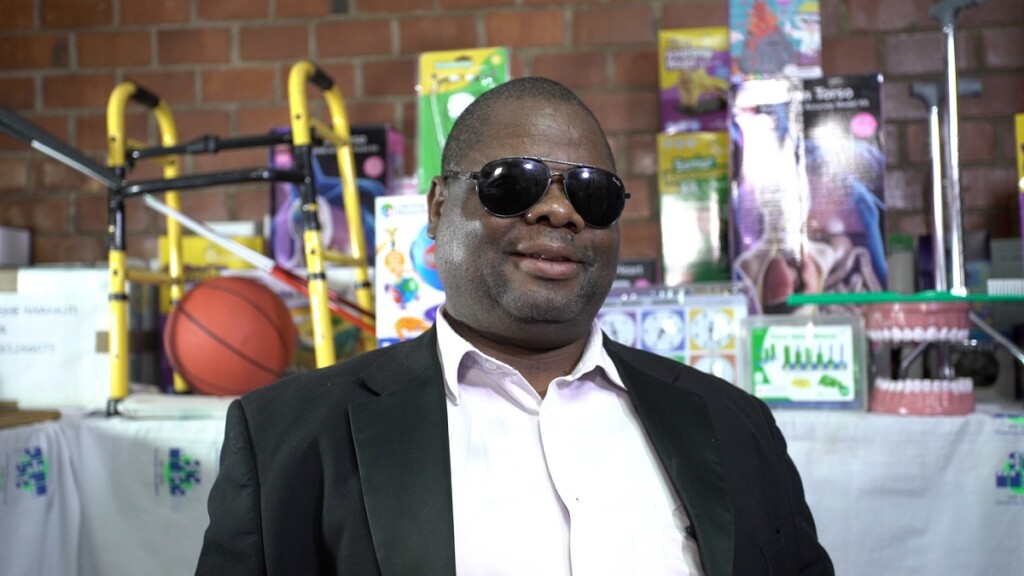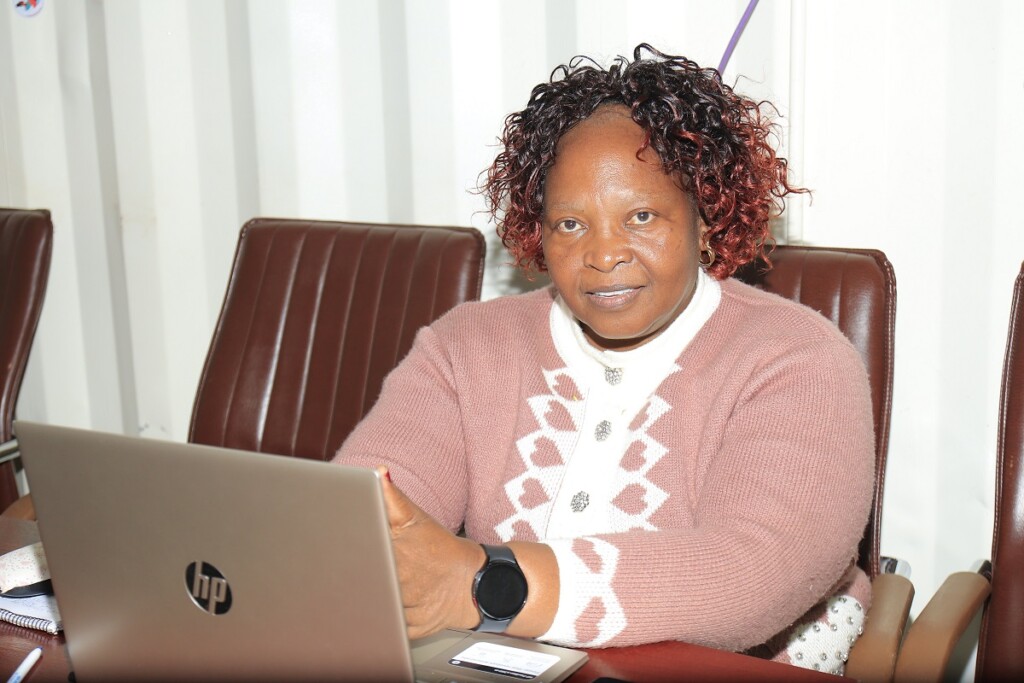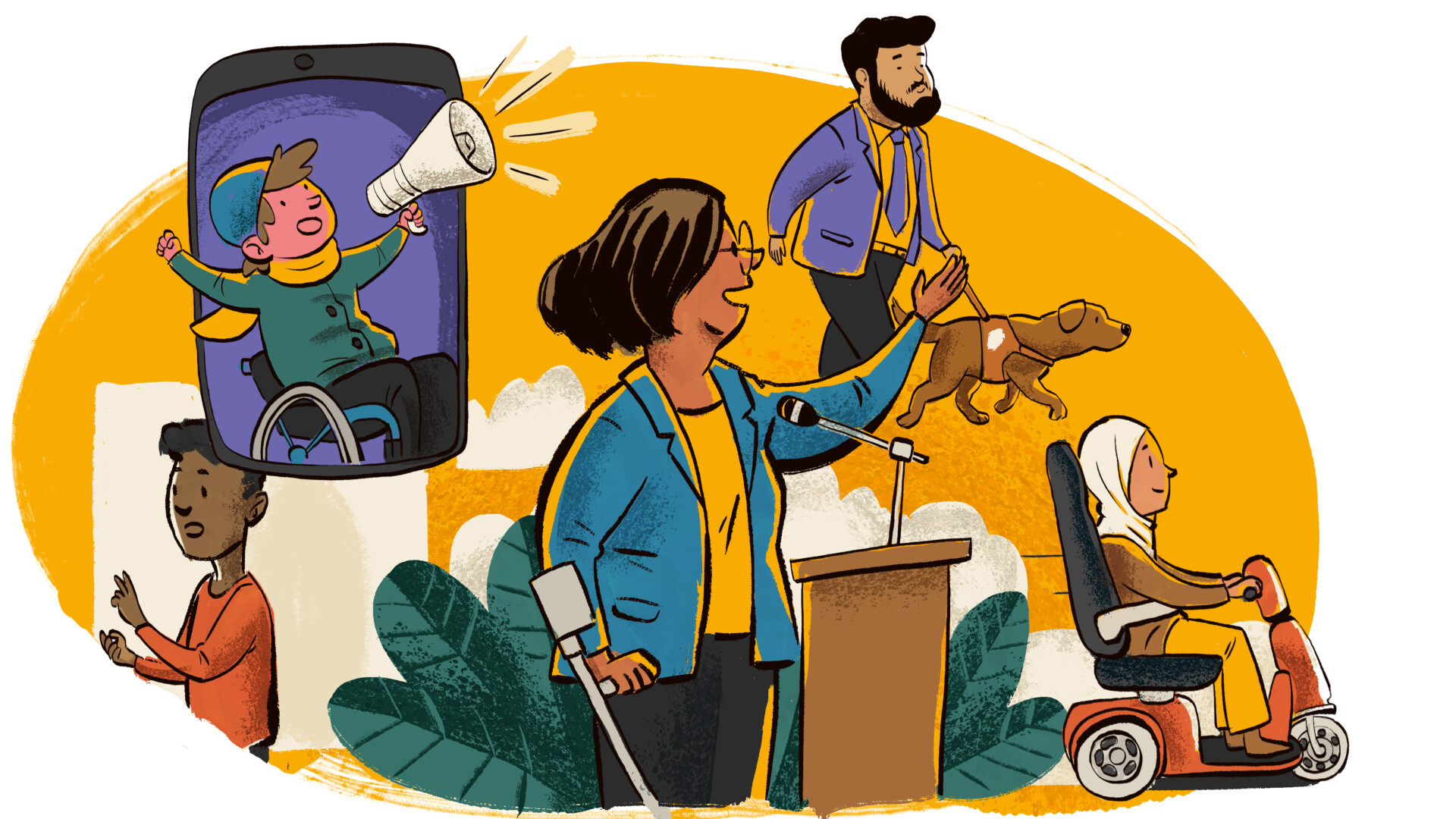Inclusion is a human right that is not 100 per cent respected in politics. Persons with disabilities face many barriers when they want to participate in political processes. Demo Finland published a policy brief on what these barriers are and how to gradually make them disappear.
Dr Thomas Mtonga wanted to become an MP to make things better for his home region in the Eastern Province of Zambia, after local chiefs and village headmen encouraged him to do so.
“There were no clinics, no schools and no bridges,” he says.
He was hesitant because odds were against him. He has lost his eyesight because of measles when he was ten years old, and it had been decades since Zambia had last had a visually impaired MP.
But he is a resilient person and had strenuously fought his way through schools and universities, completing two master’s degrees and finally a doctorate as well.
“I am full of perseverance,” Dr. Mtonga says.
He decided to go for it and put his name up for elections. The right to do so is, after all, guaranteed in Zambia’s constitution and the United Nations Convention on the Rights of Persons with Disabilities.

New Policy Brief
Demo Finland and local partners in Kenya, Zambia and later in Ethiopia have worked on joint programmes to guarantee the rights of persons with disabilities to partake in politics. The starting point has been that inclusion is not charity, but human right.
The main lessons learnt have now been compiled into a policy brief, published today by Demo Finland, in anticipation of the International Day of Persons with Disabilities.
“Political parties are key players in decision-making. Therefore, it is imperative that persons with disabilities can also participate meaningfully”, says one of the key messages of the policy brief.
Typical barriers
Dr Thomas Mtonga is one of the experts interviewed for the policy brief. Even though he had a good job at the University of Zambia, he soon noticed that campaigning is very expensive, and the resources were not enough for proper campaigning.
Another expert, Alice Munala, a disability activist and politician from Kenya confirms that economic reasons are key also in Kenya.
”Many persons with disabilities are poor, and politics requires a lot of payments.”
Other common barriers include inaccessibility of venues – even down to the podiums and chairperson’s seats –, as well as inaccessibility of communications, lack of training, beliefs that persons with disabilities are uncapable of taking on leadership positions, and even political violence.
Alice Munala knows of cases of sexual and gender-based violence against women with disabilities, which makes women scared of attending.
”Also many family members discourage them from joining politics,” she says.
Not only disability issues
Alice Munala is the secretary of her party’s disability league. In the last general elections in Kenya in 2022, she wanted to get nominated for the senate. She opted not to campaign for an elected seat in the Parliament, because she would have had to resign from her employment in order to campaign. This also is a common barrier in many countries.
Munala wants to become a lawmaker because she would like Kenyan legislation to be disability inclusive. She would especially like to advance education for children with disabilities.

This is true for many politicians with disabilities, but the policy brief also notes that it is not the whole truth.
In a study commissioned by Demo Finland in 2022, some Finnish politicians with disabilities said that they got involved in political party activities to influence the policies related to inclusion. But for others, the reason for getting involved was a more general desire to influence the society and interest in social issues, just like Dr Mtonga had done in Zambia.
Inclusion – it’s good for you
While inclusion is a human right and important for its own sake, many political parties may not have realized how many benefits they get from being more inclusive.
First, there are the numbers. Any political party wants to win elections. With 16 percent of the world’s population having disabilities, there are a lot of votes to be gathered – if the political parties are truly representative of the population.
Another key benefit of inclusion for political parties is deepened understanding on human rights, disability and the society itself. When political parties get pluralistic views in their decision-making, their positions and policies are stronger than without them.
An inclusive and representative political party is also more democratic.
”If political parties were to include persons with disabilities within their structures, they’re tapping into knowledge that has not been tapped into previously,” says project coordinator Norman Banda from Zambia National Women’s Lobby.
An inclusive and representative political party is also more democratic. If a political party is seen to uphold democratic principles and seen to respect the constitution, this can be a great boost for the political party’s public image, which can lead into more financial opportunities as well.
Recommendations for political parties
The main target audience for the policy brief are political parties. The brief offers an extensive list of recommendations to them, but it also states that the list is not a comprehensive to do -list.
”Disability is a multidimensional phenomenon, and country and political party contexts vary greatly”, the authors say.
The main thing is to make a real commitment to increase inclusion, which requires constant work together with persons with disabilities.
“The politicians should take the hand of persons with disabilities and walk with them”, says Alice Munala. “They should develop the attitude to not leave anyone behind.”
The political parties should ensure the security of persons with disabilities, especially women, in and after meetings, events and campaigns.
Accessibility is very important, both in physical establishments and in communications, the policy brief notes. Offices and meeting venues should be accessible to all, and printed materials and websites should be understandable to all.
Many persons with disabilities have lesser financial means to participate and do campaigns. The political parties should therefor consider lowering or scrapping the membership and nomination fees. Some kind of financial support mechanism could also be created.
Some countries and political parties have already started to establish quotas to women, youth, ethnic minorities and persons with disabilities for political party positions, nominations and election lists. Quotas can work to push the inclusion agenda further, the brief says.
And finally, political violence should stop. The political parties should ensure the security of persons with disabilities, especially women, in and after meetings, events and campaigns. If there are cases of gender-based or sexual violence, the perpetrators should be identified and brought to justice, so that everyone would have the courage to participate.
—
Read the policy brief here (opens in a new tab).

